Paediatric Intensive Care Unit inaugurated at AKUH
Eight-room facility to help treat 400 children a year
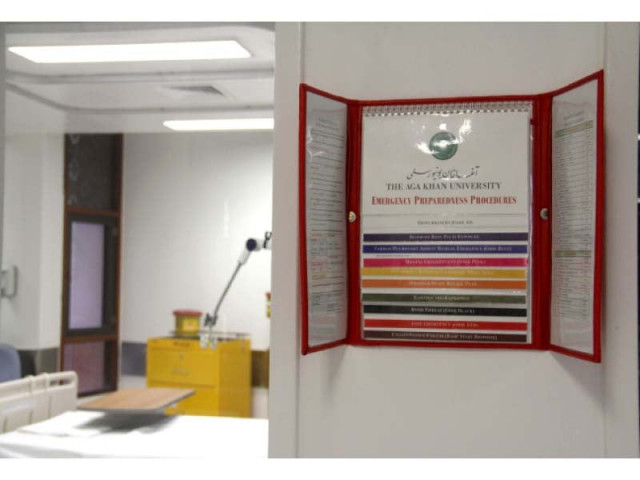
AKUH’s new paediatric facility spreads over 5,500 square-feet. PHOTO: AYESHA MIR/EXPRESS
The eight-room facility will facilitate infants, toddlers and pre-teens to help combat life-threatening diseases. Every room is equipped with state-of-the-art ventilators and advanced syringe pumps to administer essential medicines. The ward spreads over an area of 5,500 square feet and was built at a cost of Rs200 million.
The advanced systems in each room will be used by skilled paediatricians supported by a team of nurses - one nurse will be assigned to each patient ensuring that no child is left alone.
According to a Unicef report, one in 11 children in the country dies before five-years of age and one in 66 infants dies before the age of one, said Picu consultant Dr Qalbe Abbas. Pakistan’s child mortality rates highlight the need for facilities to treat children with complicated diseases, he said.
“At present, many children in critical condition continue to receive treatment alongside adults in intensive care units even though a child’s needs are different to that of an adult,” remarked AKUH’s paediatric and child health associate professor Dr Babar Hasan.
The facility will allow specialists to be available to treat ailing children and create a more comfortable environment for parents seeking the best treatment for their children, said division for women and child health interim head Prof Iqtidar Ahmad Khan.
Over the past five years, the university’s teaching hospital has noticed a three-fold increase in children requiring intensive care, said Khan. The Picu will provide personalised care to around 400 children every year thereby helping address the shortage of intensive care facilities for children in Pakistan, he added.
Speaking about the impact of Pice, AKUH president Firoz Rasul remarked that it is an integral part of the institute’s commitment to the health of women and children. “This focus on children’s health through the provision of intensive care for neonates, babies and adolescents is a key part of our services and education as well as research,” he said.
During treatment, AKUH’s specialists are constantly sharing their expertise in paediatric critical care with young doctors through the university’s fellowship programme. Upon the completion of their education and training, the fellows will be able to apply their skills at different hospitals, he added.
Published in The Express Tribune, May 24th, 2016.

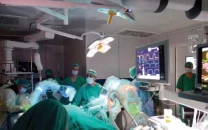
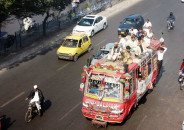



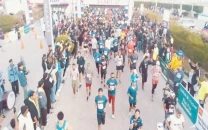

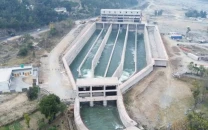









COMMENTS
Comments are moderated and generally will be posted if they are on-topic and not abusive.
For more information, please see our Comments FAQ